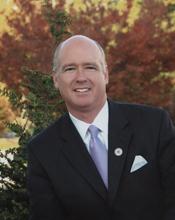US Representative
Robert Aderholt 2023-2024 Regular Session - Authored & Sponsored Legislation (Page 2)
Legislative Session
Co-Sponsor of Legislation
US
Us Congress 2023-2024 Regular Session
Us Congress House Bill HB1490
Introduced
3/9/23
Refer
3/9/23
Preventing Violence Against Female Inmates Act of 2023
US
Us Congress 2023-2024 Regular Session
Us Congress House Bill HB151
Introduced
1/9/23
Refer
1/9/23
No Frivolous Application for Short-Barreled Shotguns Act or the NFA SBS Act This bill removes certain short-barreled shotguns from the definition of firearms for purposes of the National Firearms Act. It also eliminates the prohibition on the sale or transportation of such shotguns in interstate commerce and treats persons who acquire or possess a short-barreled shotgun as meeting the registration or licensing requirements for such shotguns where such requirements are determined by reference to the National Firearms Act. The bill preempts state or local laws that impose a tax or recordkeeping requirements on short-barreled shotguns. The Department of Justice must destroy records relating to the registration of shotguns described by this bill within one year after the enactment of this bill.
US
Us Congress 2023-2024 Regular Session
Us Congress House Bill HB152
Introduced
1/9/23
Refer
1/9/23
Hearing Protection Act This bill removes silencers from the definition of firearms for purposes of the National Firearms Act. It also treats persons acquiring or possessing a firearm silencer as meeting any registration and licensing requirements of such Act. The Department of Justice must destroy certain records relating to the registration, transfer, or making of a silencer. The bill also revises the definitions of firearm silencer and firearm muffler under the federal criminal code and includes such items in the 10% excise tax category.
US
Us Congress 2023-2024 Regular Session
Us Congress House Bill HB1572
Introduced
3/14/23
Refer
3/14/23
Hello Girls Congressional Gold Medal Act of 2023
US
Us Congress 2023-2024 Regular Session
Us Congress House Bill HB1610
Introduced
3/14/23
Refer
3/14/23
Refer
3/24/23
Chiropractic Medicare Coverage Modernization Act of 2023
US
Us Congress 2023-2024 Regular Session
Us Congress House Bill HB175
Introduced
1/9/23
Refer
1/9/23
Heartbeat Protection Act of 2023 This bill makes it a crime for a physician to knowingly perform an abortion (1) without determining whether the unborn child has a detectable heartbeat, (2) without informing the mother of the results, or (3) after determining that a unborn child has a detectable heartbeat. A physician who performs a prohibited abortion is subject to criminal penalties—a fine, up to five years in prison, or both. The bill provides an exception for an abortion that is necessary to save the life of a mother whose life is endangered by a physical (but not psychological or emotional) disorder, illness, or condition. It also provides exceptions for certain pregnancies that are the result of rape or incest. A physician who performs or attempts to perform an abortion under an exception must comply with specified requirements. A woman who undergoes a prohibited abortion may not be prosecuted for violating or conspiring to violate the provisions of this bill.
US
Us Congress 2023-2024 Regular Session
Us Congress House Bill HB1770
Introduced
3/23/23
Refer
3/23/23
Refer
3/31/23
Equitable Community Access to Pharmacist Services Act
US
Us Congress 2023-2024 Regular Session
Us Congress House Bill HB1816
Introduced
3/27/23
Refer
3/27/23
Equal Campus Access Act of 2023
US
Us Congress 2023-2024 Regular Session
Us Congress House Bill HB2380
Introduced
3/29/23
Refer
3/29/23
Refer
4/7/23
Cellphone Jamming Reform Act of 2023
US
Us Congress 2023-2024 Regular Session
Us Congress House Bill HB2407
Introduced
3/30/23
Refer
3/30/23
Refer
4/7/23
Report Pass
6/27/24
Nancy Gardner Sewell Medicare Multi-Cancer Early Detection Screening Coverage Act
US
Us Congress 2023-2024 Regular Session
Us Congress House Bill HB26
Introduced
1/9/23
Refer
1/9/23
Engrossed
1/23/23
Born-Alive Abortion Survivors Protection Act This bill establishes requirements for the degree of care a health care practitioner must provide in the case of a child born alive following an abortion or attempted abortion. Specifically, a health care practitioner who is present must (1) exercise the same degree of care as would reasonably be provided to any other child born alive at the same gestational age, and (2) ensure the child is immediately admitted to a hospital. Additionally, a health care practitioner or other employee who has knowledge of a failure to comply with the degree-of-care requirements must immediately report such failure to law enforcement. A health care practitioner who fails to provide the required degree of care, or a health care practitioner or other employee who fails to report such failure, is subject to criminal penalties—a fine, up to five years in prison, or both. An individual who intentionally kills or attempts to kill a child born alive is subject to prosecution for murder. The bill bars the criminal prosecution of a mother of a child born alive under this bill and allows her to bring a civil action against a health care practitioner or other employee for violations.
US
Us Congress 2023-2024 Regular Session
Us Congress House Bill HB2662
Introduced
4/17/23
Refer
4/17/23
Collegiate Housing and Infrastructure Act of 2023
US
Us Congress 2023-2024 Regular Session
Us Congress House Bill HB2665
Introduced
4/18/23
Refer
4/18/23
Supporting Safety Net Hospitals Act
US
Us Congress 2023-2024 Regular Session
Us Congress House Bill HB2667
Introduced
4/18/23
Refer
4/18/23
Fighting Trade Cheats Act of 2023
US
Us Congress 2023-2024 Regular Session
Us Congress House Bill HB279
Introduced
1/11/23
Refer
1/11/23
Refer
1/20/23
Pharmacist Conscience Protection Act This bill prohibits the federal government and federally funded entities from discriminating or otherwise taking adverse action against a pharmacist, pharmacy owner, or pharmacy technician who declines to store, fill prescriptions for, or make referrals for drugs that cause abortions (or that the individual provider believes in good faith cause abortions). Individuals or the Department of Justice may bring civil actions for violations of this bill.
